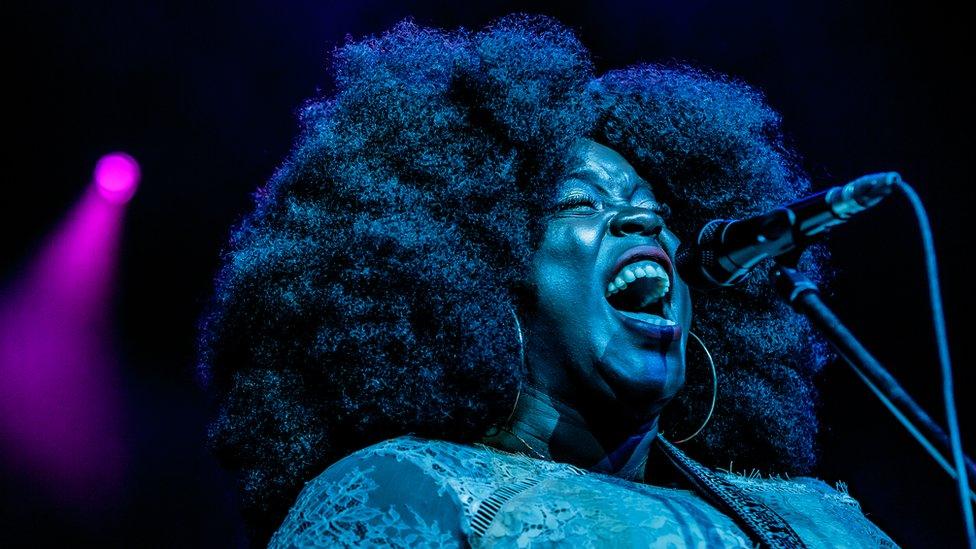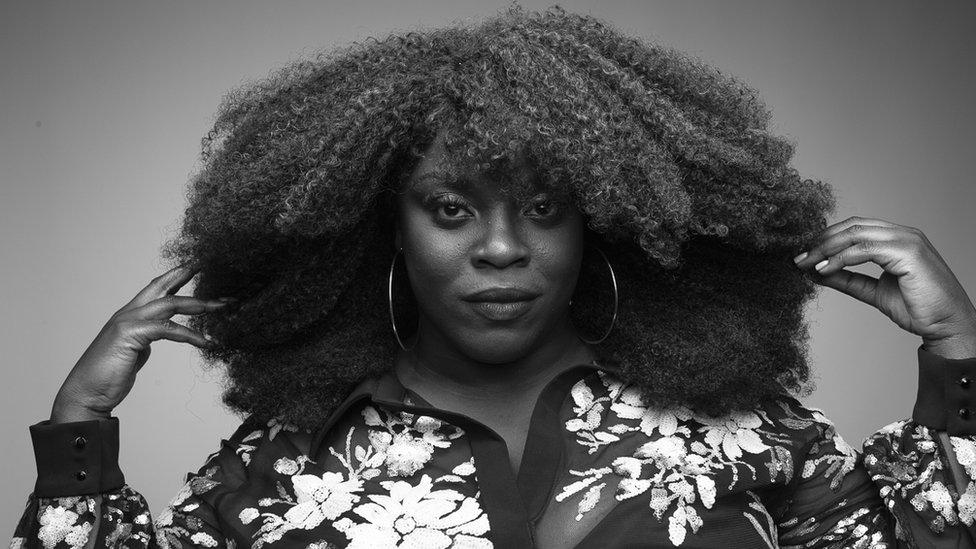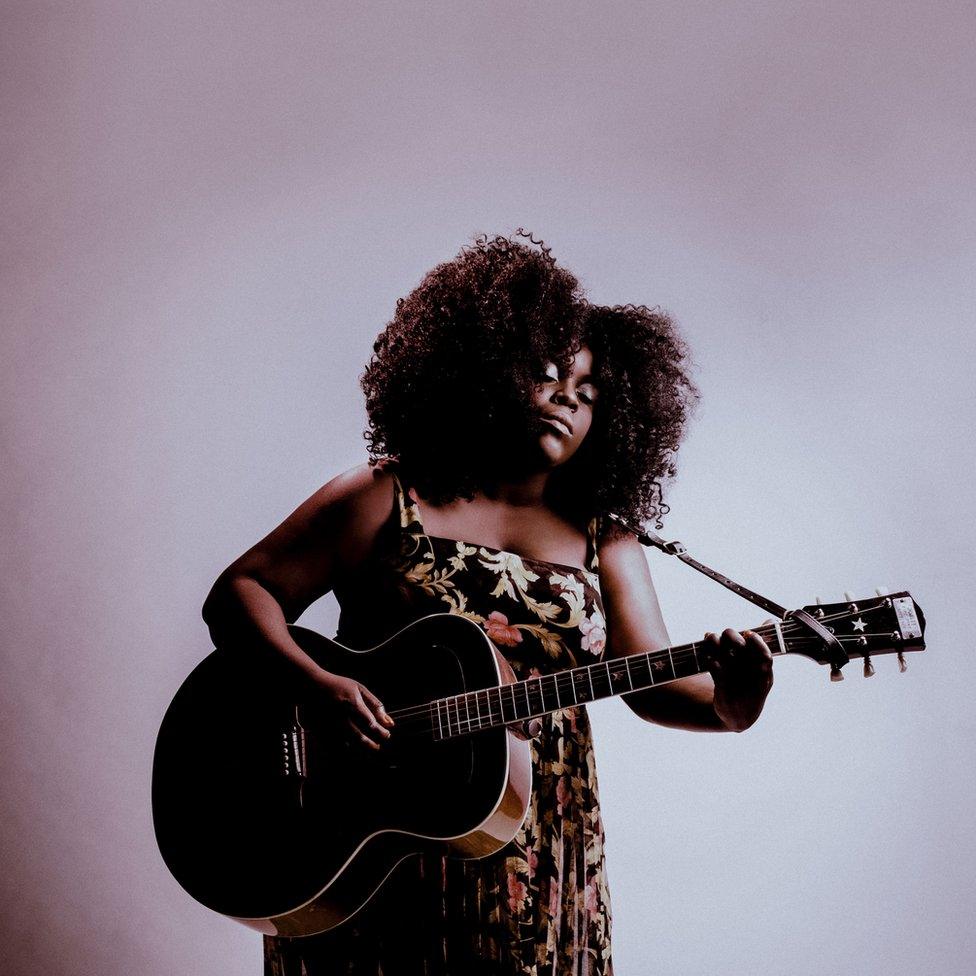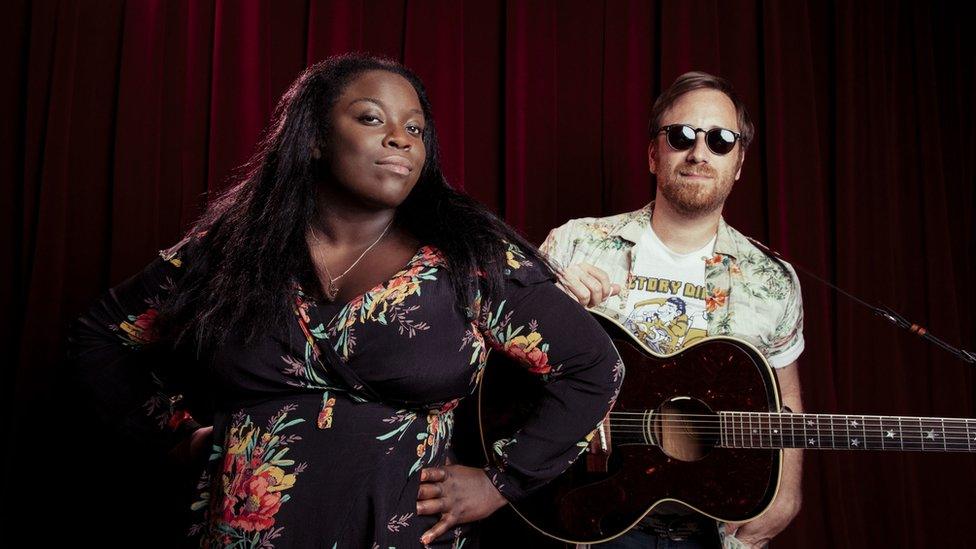Yola: From 'house screamer' to four-time Grammy nominee
- Published

"It's unreal. Surreal. I was crying intermittently for 24 hours when I found out."
British singer Yola says her phone and Insta messages "blew up" when she realised she had four nominations for the 2020 Grammys.
Alongside Radiohead's Thom Yorke, that's the most of any British artist including big names like Lewis Capaldi and Ed Sheeran.
She's up for Best New Artist with other breakout acts of the year including Lil Nas X, Lizzo and Billie Eilish.
However, despite being nominated in a new talent category, the singer says it's been a long journey to get where she is now.
"It's been a struggle," she tells Radio 1 Newsbeat, backstage before her recent gig in London.
Allow YouTube content?
This article contains content provided by Google YouTube. We ask for your permission before anything is loaded, as they may be using cookies and other technologies. You may want to read Google’s cookie policy, external and privacy policy, external before accepting. To view this content choose ‘accept and continue’.
Yola describes herself as a "genre-fluid artist" who takes soul, rock 'n' roll, country and pop, and blends it with sounds of the 1960s and 1970s.
What emerged from that musical melting pot was Walk Through Fire - her debut album which was released in February.
"When people care about what you're doing for yourself, it's very validating. I had those times when I was told no-one wanted to hear me or they wanted to hear the person next to me. It hurt every time."
Over the years, she's gone through the highs and lows of the music industry.
'Complete belief'
She was in the band Phantom Limb (under her full name Yolanda Quartey) but also experienced homelessness and slept on friends' couches and mattresses.
She also had to deal with numerous people telling her she wouldn't make it as a solo artist and to give up her dream.
To conquer it, she says took "complete belief" that she could be successful.
"I can sing a song. I can write a song. I have confidence in those two skills. If someone says they have a problem with that I can say they're wrong - as clearly as night is night and day is day."

After Elton John said he was a fan, Yola has just released a cover of Goodbye Yellow Brick Road.
Years before, she had a career as (what she calls) a "house screamer", providing vocals on anthems such as Chase and Status's Blind Faith and Duke Dumont's Won't Look Back.
She was a touring vocalist with Massive Attack and her samples were used on Chemical Brothers' tracks. But that genre wasn't her passion.
"I mean... you could wear an outfit looking like Ronald McDonald. But that doesn't mean you want to dress like that all the time does it?"

Instead, to pursue the music she wanted to make, she went to the home of country music - Nashville. It's a city which she says is "far more influential than a lot of people are aware."
"When you go there to work and you say you're a musician, people look at you like you just told them you're a doctor. It's serious business."
Initially, Nashville was intimidating for her because there was "a legend in every studio".
"It took me a little while to get over the fear thing. I really wasn't embodying that stereotype of the strong black woman. Instead, I was the terrified black woman."

Yola and The Black Keys' lead singer Dan Auerbach, who produced her debut album, Walk Through Fire
She's also been nominated in the Best Americana Album category for Walk Through Fire. The album received pretty glowing reviews when it was released, with one critic at NPR, external calling it the work "of an artist sure to stun audiences for years to come".
It was produced by the Black Keys' lead singer Dan Auerbach. Opening track, Faraway Look, is also nominated for Best Americana Roots Song and Best Americana Roots Performance.
Yola says her success is down to "a lot of work and a lot of figuring out who I am," and reckons nobody should be happy being pigeonholed.

Yola currently lives between Nashville (pictured) and Bristol
Asked what she says to the people who doubted her: "One... You're a muppet. Two... you're a muppet. And three... guess what you are!"
Now she's making it big, Yola's had messages from some of those who said she wouldn't get anywhere.
"Everyone's got short term memories," she says.
"It's insane but it's conditioning. They don't realise they're sexist. They just don't have any female friends or work with any females. They don't realise they have cognitive bias on issues of race. They just don't have any friends of colour.
"You don't realise you have these problems until you end up having to call on them in some way, or call on their support... not even to do anything, just to not be down on you for trying to live your best life.
"That's all any of us are trying to do... live our best darned lives."


Follow Newsbeat on Instagram, external, Facebook, external, Twitter, external and YouTube, external.
Listen to Newsbeat live at 12:45 and 17:45 weekdays - or listen back here.